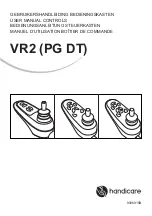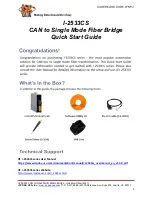
©
National Instruments Corporation
B-1
B
Troubleshooting
This section contains common q
u
estions abo
u
t USB-621
x
devices. If yo
u
r
q
u
estions are not answered here, refer to the National Instr
u
ments
KnowledgeBase at
ni.com/kb
.
Analog Input
I am seeing crosstalk or ghost voltages when sampling multiple
channels. What does this mean?
Yo
u
may be experiencing a phenomenon called charge injection, which
occ
u
rs when yo
u
sample a series of high-o
u
tp
u
t impedance so
u
rces with a
m
u
ltiplexer. M
u
ltiplexers contain switches,
u
s
u
ally made of switched
capacitors. When a channel, for example AI 0, is selected in a m
u
ltiplexer,
those capacitors acc
u
m
u
late charge. When the next channel, for example
AI 1, is selected, the acc
u
m
u
lated c
u
rrent (or charge) leaks backward
thro
u
gh channel 1. If the o
u
tp
u
t impedance of the so
u
rce connected to AI 1
is high eno
u
gh, the res
u
lting reading can somewhat affect the voltage in
AI 0. To circ
u
mvent this problem,
u
se a voltage follower that has
operational amplifiers (op-amps) with
u
nity gain for each high-impedance
so
u
rce before connecting to a USB-621
x
device. Otherwise, yo
u
m
u
st
decrease the sample rate for each channel.
Another common ca
u
se of channel crosstalk is d
u
e to sampling among
m
u
ltiple channels at vario
u
s gains. In this sit
u
ation, the settling times can
increase. For more information abo
u
t charge injection and sampling
channels at different gains, refer to the
section of Chapter 4,
I am using my device in differential analog input ground-reference
mode and I have connected a differential input signal, but my readings
are random and drift rapidly. What is wrong?
In differential mode, if the readings from the DAQ device are random and
drift rapidly, yo
u
sho
u
ld check the gro
u
nd-reference connections. The
signal can be referenced to a level that is considered floating with reference
to the device gro
u
nd reference. Even if yo
u
are in differential mode, yo
u
m
u
st still reference the signal to the same gro
u
nd level as the device
















































